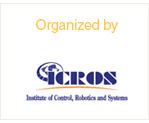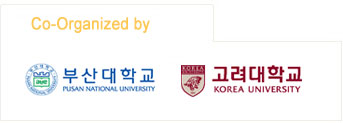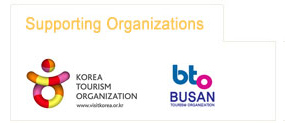 Special SessionICCAS2015 > Program > •Special Session
Special SessionICCAS2015 > Program > •Special Session
Title: Korean Student Workshop: Do's and Don'ts in Paper Writing and Presentation
- October 14(WED) ; 9:10~10:40
- Organizer: Choon Ki Ahn (Korea University) & Hyungbo Shim (Seoul National University)
- 09:10~09:55 - On Paper Writing (Choon Ki Ahn)
- 09:55~10:40 - On Presentation (Hyungbo Shim)
- Theme: This session discusses how to write a good journal paper for Korean graduate students who are writing or preparing a journal paper. In addition, this session introduces how to prepare and make an effective and engaging conference presentation for Korean graduate students.
- * Korean is used in the session.
Title: Advances in Underwater Vehicle
- October 14(WED) ; 16:30~18:00
- Organizer: Ayoung Kim (KAIST)
- Theme: In this Session, advances in underwater vehicle researches will be presented. The topic covers from sensing, design, and wide application of underwater vehicles.
Title: How to Achieve Successful Technology Transfer
- October 15(THU) ; 13:00~14:30
- Organizer: Jae-Bok Song (Korea University), Sungchul Kang (KIST), Sam Park (Yujin Robot)
- Theme: In recent years, technology transfer from the research labs of the academia and research institutes to the industry has become increasingly important because the world is facing technology warfare. Especially, in Korea, most doctoral degree holders are working in academia and national research institutes, so many new technologies are developed in these research labs. Obviously, successful transfer of such technologies to the industry will strengthen the competitiveness of high-tech companies. In this special session, three speaker from the academia, research institute, and enterprise will talk about some successful cases and their experiences about successful technology transfer.
- * Korean is used in the session.
Title: Bio-inspired Robot Design
- October 16(FRI) ; 9:10~10:40
- Organizer: Sangbae Kim (MIT), Kyujin Cho (Seoul National University), Hoon Cheol Park (Konkuk University)
- Theme: Bio-inspired robot designs attempt to translate biological principles into engineered systems, replacing more classical engineering solutions in order to achieve a function observed in the natural system. This special session will present bio-inspired robots that replicate key principles from nature with novel engineering solutions. The challenges of bio-inspired robot design include developing a deep understanding of the relevant natural system and translating this understanding into engineering design rules. This often entails the development of novel fabrication and actuation technologies to realize the design.
fNIRS Forum : Toward a mobile brain imagerDownload: fNIRS Forum program.pdf
| October 16(FRI) ; 13:30~15:50 | |
|---|---|
| A forum on fNIRS | (functional near-infrared spectroscopy) will be held in Busan, Korea, during the International Conference on Control, Automation and Systems (ICCAS 2015, http://2015.iccas.org), which is co-organized by the Institute of Control, Robotics and System (ICROS). In this forum, international scholars and experts will be gathered together to discuss the state-of-the-art methods, results, applications, and future perspectives in the fNIRS field. |
| Theme: fNIRS’s role as a mobile brain imaging modality Organizer/Chair: Prof. Keum-Shik Hong, PNU, Korea |
|
| 13:30~13:45 | Handling motion, systemic interference, and anatomical guidance for fNIRS (Prof. David Boas, Harvard Medical School) |
| 13:45~14:00 | Artifacts and pitfalls in fNIRS (Prof. Satoru Kohno, Tokushima University) |
| 14:00~14:15 | A unified sparse recovery and inference framework for functional DOT using random effect model (Prof. Jong Chul Ye, KAIST) |
| 14:15~14:30 | fNIRS: An effective neural modality for discovering brain plasticity in rehabilitation (Dr. Jinung An, DGIST) |
| < Break: 14:30~14:40 > | |
| 14:40~14:55 | Towards more intuitive BCI: Classification of binary covert intentions using fNIRS (Prof. Chang-Hwan Im, Hanyang University) |
| 14:55~15:10 | Drowsiness detection during automobile driving by a combined NIRS and EEG system (Prof. Jae Gwan Kim, GIST) |
| 15:10~15:25 | A portable, multi-channel fNIRS system for prefrontal cortex: Preliminary study on neurofeedback and imagery tasks (Prof. Beop Min Kim, Korea University) |
| 15:25~15:40 | Detection of initial dip: Possibility of 3D imaging using fNIRS (Prof. Keum-Shik Hong, PNU) |
| 15:40~15:50 | Discussion |











